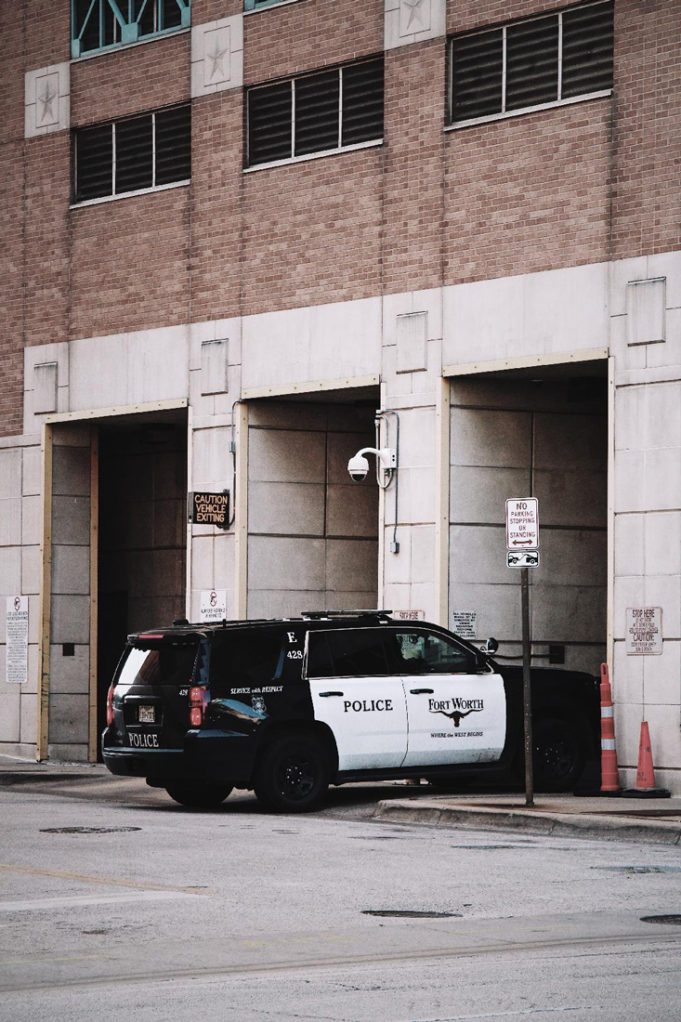News reports about the 2020 death of Andrew “Andre” Wilson provided little information about the 34-year-old Black man other than his supposed cause of death — an unknown medical emergency. His was the ninth death at the county jail that year. Were it not for the high number of population deaths in 2020, which eventually tallied 16, and public concern over COVID-19 spreading throughout the facility, most media outlets probably would not have covered his sudden death.
The official cause of death, according to Wilson’s custodial report, was cardiomegaly, which means he had an enlarged heart. I requested a copy of the official autopsy report. The toxicology report found traces of Trazadone, an antidepressant, in his urine but no traces of illegal drugs. The neck did not show signs of trauma, the report read, and small particles of food were found in his lungs, suggesting violent gasping had occurred. Wilson’s heart weighed 523 grams while the average male heart weighs 280 to 340 grams.
“The inmate was checked and given a dinner tray,” one report summary reads. “After all inmates were fed, the officers were picking up their trays and discovered him laying [sic] on the floor of his cell.”
Wilson was booked in Tarrant County Jail on June 18 for criminal trespassing and burglary. A recently discovered seven-page letter by Joe (not his real name), a friend of Wilson’s and current Tarrant Jail detainee, humanizes those criminal charges.
Wilson’s “mother died when he was a kid,” Joe wrote. “His father was never there. He moved to Texas a few years ago. He was homeless and living in a tent. [He was] waiting on government-assisted housing and had a [My Health My Resources (MHMR)] caseworker coming to his cell and talking to him weekly. She told him his housing voucher had been approved and to go get the keys to his apartment in 30 days when he completes his six-month sentence for trespassing and breaking into a Goodwill.”
Joe describes Andre’s first name as Andrew and his age as 25, not 34. In Tarrant County and across the country, criminal trespassing charges disproportionately target the homeless and poor (“ White Customer, Black Trespasser,” Aug. 2020). Advocates for criminal justice reform seek to reframe certain petty crimes that may involve stealing socks or seeking warmth during winter as “crimes of survival.” A county spokesperson provided me with a copy of documents related to Wilson’s booking in Tarrant County Jail. According to the county, he was arrested on June 18, 2020, and charged with “burglary of building,” a felony charge. His bond was set at $1,000 by magistrate Judge Filipe Calzada.
Joe mailed the letter to his mother shortly after Wilson’s September death, but his mother did not open it until recently. Joe’s mother told me she was undergoing a series of cancer treatments that included a major surgery last year, and that is why the letter went unnoticed until recently. The local sheriff’s department does not allow incoming calls to members of the jail population, so I communicated with Joe through his mother.
The mother said her son “was moved away from the area right before” the murder. “It had to be the jailer that set the circumstances up. They didn’t want [Joe] as a witness, so they moved him.”
The following unedited account is based on Joe’s letters, which he titled “The Death-Murder of Andrew Wilson.” A copy of the letter has been forwarded to the Tarrant County Sheriff’s Office for their review. The names of the individuals mentioned have been replaced with the first letter of their last names to protect their privacy.
“Me, M, and H was on Lon Evans [Corrections Center] when Andrew Wilson arrived,” Joe wrote. M and H “rarely talked to him for the first two weeks. They knew he was homeless and in jail for breaking into a Goodwill. For three weeks, he didn’t have no deodorant. H and M made fun of him. H said, ‘I wouldn’t have you in my circle. You’re a bum.’ They never respected him and didn’t acknowledge him as a gangster.”
Wilson told members of his cell that he was a member of the Crips, a street gang, but no one believed him.
“I was only associating with an inmate named S who H and M say is a snitch because he told [a jailer] about a possible escape route that some inmates were planning to escape out of. So I was conversing with S one day on an intellectual subject, and Andrew Wilson joined the conversation. We all had a good talk. Well, M and H were listening the whole time.”
H yelled that Wilson was not a Crip because he was talking to a snitch.
“They talked about beating [Wilson] up for the next few days,” Joe wrote. “He didn’t say nothing back to them. He never disrespected him. It seemed that he was looking for acceptance from H and M. That’s when H and M came up with this scheme to play it cool with him to get his $1,200 stimulus money” from the Internal Revenue Service.
M started sharing his newspapers with Wilson, who then, according to Joe, gave M his social security number.
“Three weeks after Andrew gave M his social security number, I noticed [M] was spending $100 a week at the commissary for weeks straight,” Joe wrote. “He had got Andrew’s $1,200 and had spent it. Now H and M didn’t need him no more. They began to get hostile with him again.”
Wilson verbally told M and H that he was going to report the theft of the stimulus money when he was released from jail. Soon after, H yelled at Andrew, “I’ll kill you!” Joe alleges that jailers would frequently “pop” the doors of jail cells to allow certain inmates to fight. Joe’s friendship with Wilson made him a target of M and H and a cohort of Crips who supported M and H. Joe feigned having suicidal thoughts as a means of being transferred to a different section of the jail. After several weeks, M was transferred to the same section. That’s when Joe learned about his friend’s death and the Crips’ alleged involvement.
The Crips decided to murder Wilson for several reasons, Joe wrote. Wilson’s friendship with S, the so-called snitch, was one factor. Fear over being turned in for stealing $1,200 was another, Joe wrote. Even seemingly minor choices, like Wilson’s decision to share M’s newspapers with Joe, may have made Wilson a marked man.
In the days leading up to Wilson’s death, M, H, and other members of Wilson’s cell block had figured out how to open their jail cells, Joe wrote.
“Inmates learned how to open the locks on their door by pouring piss on the locking mechanism and causing an electrical short circuit that allowed the door to come open,” Joe wrote.
Joe said officers knew inmates were opening their doors and going into other inmates’ cells to fight. Joe believes M was receiving medical treatment in a hospital at the time, which makes H the primary suspect. Whoever killed Wilson could have opened their cell, opened Wilson’s cell, placed Wilson in a chokehold, and returned to their cell before any guards noticed, according to Joe.
“The guard would play like they didn’t know anything so they weren’t fired,” Joe wrote. “To anyone who didn’t know the situation, it would appear as if Andrew died of natural causes. Cause of death would be unknown.”
Or, Joe speculates, prescription pills could be ground up finely and placed in Wilson’s food, which could cause a heart attack.
News reports from last year said the Texas Rangers investigated the incident. I reached out to them for details about their investigation but did not hear back by press time. The local sheriff’s office did not respond to my questions about the case.
Krishnaveni Gundu, executive director with Texas Jail Project, said that custody death reports and official accounts of jail custody deaths “rarely, if ever, tell the full story.”
Her nonprofit works to humanize the plight of Texas county jail populations by telling the stories of the often-impoverished men and women who can spend months or years waiting for their trial dates.
“Jailers and sheriffs in Texas have historically obstructed justice and concealed key facts in death investigations,” she said. “Sheriff [Bill] Waybourn and Tarrant County jailers need to be held responsible for the culture of death and punishment in Tarrant County Jail, which leads the state in rates of custody deaths in jails. Additionally, Tarrant County residents should be horrified that Andre Wilson was being held solely for his inability to pay $1,000. Poverty should not be punishable by death.”












